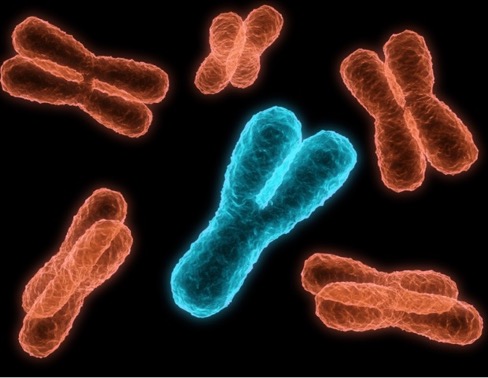Breakthrough decoding of the Y chromosome revolutionizes digestive disease research
November 25, 2023
Source: drugdu
 563
563

A major breakthrough in human genetics has been achieved with the complete decoding of the human Y chromosome, opening up new avenues for research into digestive diseases. This milestone, along with advancements in third-generation sequencing technologies, is poised to revolutionize our understanding of the genetic underpinnings of digestive disorders and pave the way for more personalized and effective treatment strategies.
The Y chromosome, the smallest of the human chromosomes, has long been shrouded in mystery due to its complex repetitive structure. However, recent advancements in sequencing technologies have enabled researchers to unravel the intricate details of this genetic region, shedding light on its role in sex determination and its potential impact on various diseases, including those affecting the digestive system.
Completing the Y chromosome sequence provides a comprehensive reference for identifying genetic variations that may contribute to digestive diseases. This information is crucial for understanding the "missing heritability" problem, where the proportion of disease risk attributable to known genetic factors falls short of what is expected based on heritability estimates.
With their ability to generate long, continuous DNA reads, third-generation sequencing technologies play a pivotal role in deciphering the complex genomic landscapes of digestive diseases. These technologies enable the detection of structural variations, such as copy number variations and inversions, which were previously inaccessible using older sequencing methods. These structural variations may play a significant role in disease susceptibility and progression.
The combined power of complete Y chromosome sequencing and third-generation sequencing technologies holds immense promise for advancing digestive disease research. By identifying novel genetic variants and elucidating their functional roles, researchers can better understand the mechanisms underlying digestive disorders and develop more targeted and effective therapies.
In addition to unraveling the genetic basis of digestive diseases, completing the Y chromosome sequence also opens up new opportunities for investigating sex-specific genetic effects. Sex differences in disease susceptibility and progression are well-documented in many digestive disorders, yet the underlying genetic mechanisms remain largely unknown. With its unique genetic content and expression patterns, the Y chromosome may play a crucial role in these sex disparities.
The future of digestive disease research is undoubtedly bright with the advent of complete Y chromosome sequencing and third-generation sequencing technologies. These groundbreaking advancements hold the potential to transform our understanding of digestive disorders, leading to the development of more personalized and effective treatment strategies that improve patient outcomes.
Source:
https://www.news-medical.net/news/20231123/Breakthrough-decoding-of-the-Y-chromosome-revolutionizes-digestive-disease-research.aspx
Read more on
- The first subject has been dosed in the Phase I clinical trial of Yuandong Bio’s EP-0210 monoclonal antibody injection. February 10, 2026
- Clinical trial of recombinant herpes zoster ZFA01 adjuvant vaccine (CHO cells) approved February 10, 2026
- Heyu Pharmaceuticals’ FGFR4 inhibitor ipagoglottinib has received Fast Track designation from the FDA for the treatment of advanced HCC patients with FGF19 overexpression who have been treated with ICIs and mTKIs. February 10, 2026
- Sanofi’s “Rilzabrutinib” has been recognized as a Breakthrough Therapy in the United States and an Orphan Drug in Japan, and has applied for marketing approval in China. February 10, 2026
- Domestically developed blockbuster ADC approved for new indication February 10, 2026
your submission has already been received.
OK
Subscribe
Please enter a valid Email address!
Submit
The most relevant industry news & insight will be sent to you every two weeks.



